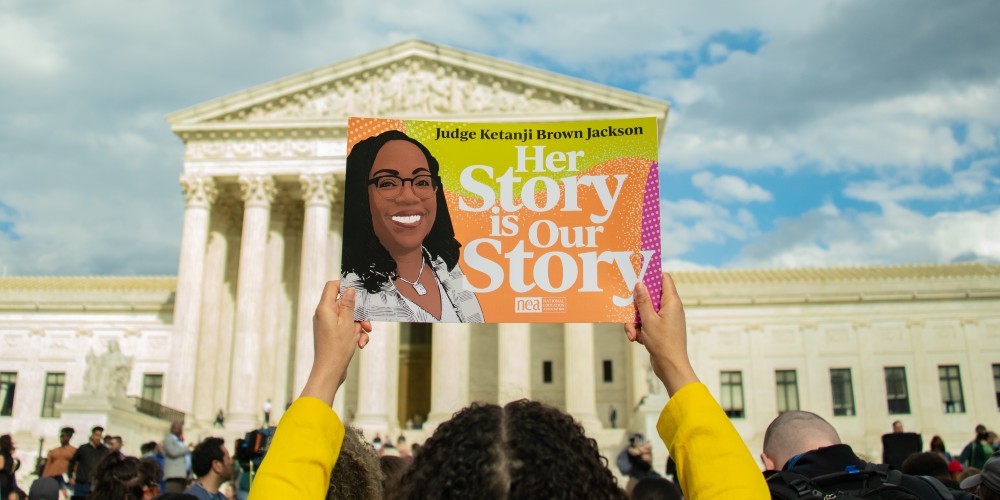(Mises)—Many people are familiar with the divisive concepts of Critical Race Theory (CRT). The best-known examples are the notion of “white privilege” and the redefinition of racism as “power plus privilege.” These concepts have been widely rejected, and even banned from public schools in some states. However, less often remarked upon is CRT’s more pernicious rejection of truth and reason. It is not merely that CRT believes truth to be relative, but that it rejects the importance of reason and facts altogether: “its proponents reject objective truth, reason, and empirical evidence. Instead, critical theorists assert that only identity and oppression matter.”
CRT is not alone in rejecting the idea of objective truth, as that is the essence of relativist theories. The particular danger posed by CRT to the institutions that have embraced it, including public offices fulfilling executive, legislative, and judicial functions, does not simply arise from CRT insisting that you have “your truth” and I have “my truth.” The bigger problem is that, in CRT, truth varies based on one’s racial identity. Thus, in CRT the concept of objective truth is treated as a Western value derived from the “ethics of whiteness.” For example, Charles Mills argues that the concept of “white ignorance” denotes “a group-based cognitive handicap” affecting white people. According to Mills, black people by contrast have “epistemic privilege” which enables them to avoid the “epistemic pitfalls” of those classified as “white knowers.”
In his introduction to Human Action, Ludwig von Mises rejects “the polylogism of the racists.” He describes that epistemological approach as one in which “there exists between various races a difference in the logical structure of mind.” From that premise, it follows that each race has “a logic of its own.” Mises also rejects Marxist class polylogism, which “asserts that man’s thinking is determined by his class affiliation [and that] every social class has a logic of its own,” from which it follows that “the product of thought cannot be anything else than an ‘ideological disguise’ of the selfish class interests of the thinker.” For the same reasons he also rejects historical polylogism, which “asserts that the logical structure of human thought and action is liable to change in the course of historical evolution.” Mises warns that, although the influence of all these forms of polylogism spreads beyond the field of economics, with implications for all disciplines, including the physical and biological sciences, nevertheless “it is the sciences of human action that they really have in view.” Their real target is economic science. He observes that the central aim of polylogists is to reject the notion that any universal principles can be derived in relation to human beings:
They say that it is an illusion to believe that scientific research can achieve results valid for people of all eras, races, and social classes, and they take pleasure in disparaging certain physical and biological theories as bourgeois or Western.
The significance of polylogists deriding any principles as “bourgeois” or “Western” is that such principles need not be respected or upheld by those who don’t “identify” with these groups—any principle can simply be dismissed out-of-hand on grounds that it only applies to those of Western heritage. Thus, we heard it said in Congress, during debate on the Dismantle DEI Act, that oppression is a state of affairs which only black people experience and no white men have ever experienced oppression. This is “true” in CRT, because their premise is that the meaning of oppression is racially determined. Similarly, some of the dissenting opinions in the Supreme Court affirmative action case would not be out of place in a CRT manual, where the view is expressed that “colorblindness” is wrong because the “truth” is that legal rights are racially determined:
“With let-them-eat-cake obliviousness, today, the majority pulls the ripcord and announces ‘colorblindness for all’ by legal fiat,” [Justice Ketanji Brown] Jackson wrote. “But deeming race irrelevant in law does not make it so in life.”
As those examples illustrate, the message championed by CRT adherents is that everyone’s reality is based on race, and that DEI laws are to be commended for acknowledging this reality while banning affirmative action is wrong because that would impose “colorblindness for all by legal fiat.” Such arguments are now heard, not only in the humanities and social sciences, but even in the natural sciences. It is said, for example, that fields such as mathematics ought to be “decolonized” to make their principles relevant to different races and cultures.
Mises’s rejection of polylogism was explicated in response to the then-prevailing philosophy which presumed reason and logic to be determined by one’s class, race, or the epoch to which he belongs. Mises’s goal in Human Action was to explain the science of economics as a universal science. Hence, he rejected the previously prevailing notion that principles of economics vary from one person or one group to another, and that “its teachings are valid only for the capitalist system of the short-lived and already vanished liberal period of Western civilization.” He aimed to explain economic principles not as true in a specific time for a specific group of people, but “a regularity of phenomena to which man must adjust his action if he wishes to succeed.” These principles apply to all human beings, of all races, at all times.
In addition to rejecting racial polylogism, Mises also rejects the forms of relativism which hold that there is no objective truth or objective reality. The subjective theory of value—the principle that there is no such thing as an absolute moral value that everyone ought to uphold—does not imply that there are no universal principles—otherwise Mises would be contradicting himself. David Gordon clarifies this important point in “Mises and Moral Relativism”:
Does this make Mises a moral relativist? He doesn’t think that there is anything to the concept of “value” other than subjective preferences, so if this is what you mean by a relativist, he was one. But this isn’t the way most philosophers today use the term. A moral relativist is someone who, as the name suggests, thinks that morality is relative to something, usually a person’s society or culture. A relativist might hold, for example, that slavery was morally right in ancient Greece and Rome, because it was accepted there, but wrong in America today. This isn’t subjectivism, because the relativist isn’t saying it’s a matter of arbitrary preference whether slavery is right or wrong: he is saying that slavery is objectively right (or wrong) relative to a particular society. A variant of moral relativism holds that what is morally right is relative to the individual, but even this isn’t subjectivism. The defender isn’t saying that what’s right is nothing more than persons’ subjective preferences. Rather, he is saying that it is objectively the case that what is right for each person is what he prefers.
In this way of understanding relativism, Mises was not a moral relativist. He thought that social cooperation through the free market resulted in peace and prosperity, regardless of whether people or societies accepted this or not.
With that in mind, the relevance of Mises’s rejection of polylogism for understanding the threat posed by CRT lies in his defense of universal principles of human action. As Gordon observes,
His primary objective is always to defend the free market against any doctrine that can be used to attack it. For example, he criticizes the logical positivists, because their view of meaning would undermine praxeology, and for the same reason he rejects various forms of what he calls “polylogism.”
It is on that basis that Misesians defend the philosophical principles that underpin free markets and all forms of human liberty from CRT’s attacks. By embracing racial polylogism, CRT rejects the very foundations of the liberty we defend.


